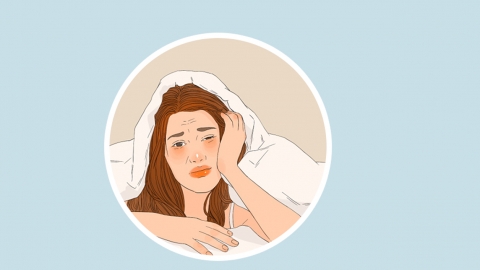What should be done for deficiency of both yin and yang?
In general, deficiency of both yin and yang may be caused by factors such as aging, excessive fatigue, kidney deficiency and damage, combined deficiency of the lungs, spleen, and kidneys, or heart-kidney deficiency. It is recommended to seek medical attention promptly, identify the underlying cause, and then improve the condition under a doctor's guidance through general management, medication, and other approaches. Specific causes are analyzed as follows:

1. Aging: With increasing age, the body's organ functions gradually decline, leading to progressive depletion of yin fluids and yang qi, which can easily result in deficiency of both yin and yang. Symptoms may include fatigue, cold intolerance accompanied by tidal fever. Daily routines should include regular sleep patterns, avoiding staying up late. Diet-wise, moderate consumption of medicinal foods such as Chinese yam, goji berries, and walnuts is beneficial. Additionally, engaging in mild physical activities like walking or tai chi can help strengthen overall constitution.
2. Excessive Fatigue: Prolonged physical or mental overexertion depletes both yang qi and yin fluids, leading to deficiency of both yin and yang—commonly seen in individuals who frequently stay up late or work under high pressure. It is important to balance work and rest appropriately, avoid overexertion, ensure 7–8 hours of sleep per day, and relax before bedtime through foot baths or listening to soft music to aid recovery.
3. Kidney Deficiency and Damage: Imbalance of kidney yin and yang—either unresolved kidney yin deficiency that eventually damages kidney yang, or prolonged kidney yang deficiency that impairs kidney yin—can lead to symptoms such as soreness and weakness in the lower back and knees, cold aversion, and night sweats. Patients should follow medical advice and use herbal formulas such as Jin Kui Shen Qi Wan, Gui Fu Di Huang Wan, or You Gui Wan for regulation.
4. Combined Deficiency of Lung, Spleen, and Kidney: Chronic lung yin deficiency with persistent coughing may deplete kidney yin, while spleen yang deficiency leads to impaired transformation and transportation, causing insufficient yang qi, ultimately resulting in deficiency of both yin and yang. This may present with symptoms such as dry cough with little phlegm, abdominal distension, and cold intolerance. Under medical guidance, medications such as Jin Shui Bao Capsules, Gu Ben Ke Chuan Pian, or Shen Ling Bai Zhu San may be used to alleviate symptoms.
5. Heart-Kidney Deficiency: When heart fire fails to descend and warm kidney water, and kidney yin cannot rise to nourish heart fire, prolonged imbalance leads to deficiency of both heart and kidney yin and yang. Symptoms include palpitations, insomnia, soreness and weakness in the lower back and knees, cold intolerance, and irritability. Patients should follow medical advice and take prescriptions such as Tian Wang Bu Xin Dan, Jiao Tai Wan, or Yang Xin Shi Pian for treatment.
In daily life, maintaining emotional stability and avoiding excessive anxiety or depression is essential. A balanced diet should be maintained, avoiding raw, cold, or spicy foods. Dress appropriately according to seasonal changes to prevent invasion by external pathogens. Through comprehensive regulation, deficiency of both yin and yang can be improved, supporting long-term health and well-being.






